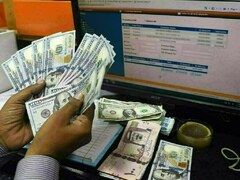BERLIN: German Chancellor Olaf Scholz says he plans to speak to Russian President Vladimir Putin “in due course”, holding out the prospect of resuming contact after a near-total breakdown in relations since the Ukraine war.
“My last telephone call was some time ago,” Scholz told the Koelner Stadt-Anzeiger newspaper in an interview published Friday. “But I plan to speak to Putin again in due course.”
The leaders last spoke by telephone in early December.
During that hour-long call, Scholz urged Putin to withdraw Moscow’s troops from Ukraine, while the Russian leader accused the West of pursuing “destructive” policies.
Since then, tensions have only escalated between Moscow and Berlin, particularly over the decision by Scholz’s government in January to allow German-made heavy battle tanks to be sent to Ukraine.
In the interview, Scholz insisted that his aim remained to “actively support Ukraine”, but “at the same to prevent a direct conflict between NATO and Russia”.
“And never to act alone, but in close coordination with our friends and allies,” he said.
Asked about the prospect of halting the conflict through negotiations, Scholz said that Putin had to understand that the war could not be ended by making “some kind of cold peace”.
Germany’s Scholz calls for pragmatism as US pushes Russia export bans
“For instance, by turning the current front line into the new ‘border’ between Russia and Ukraine,” he said.
“Rather it is about a fair peace, and the prerequisite for that is the withdrawal of Russian troops,” he added.
Ties between Russia and Germany plunged into a deep freeze after Moscow sent its forces into Ukraine in February last year.
The invasion, and Moscow’s move to slash gas supplies to Europe, hit Germany particularly hard as the country had come to rely on inexpensive Russian energy to power its economy.
The conflict has prompted Germany to drop a traditionally pacifist stance, with Berlin sending a barrage of weaponry to help Kyiv in its fight against Moscow.























Comments
Comments are closed.